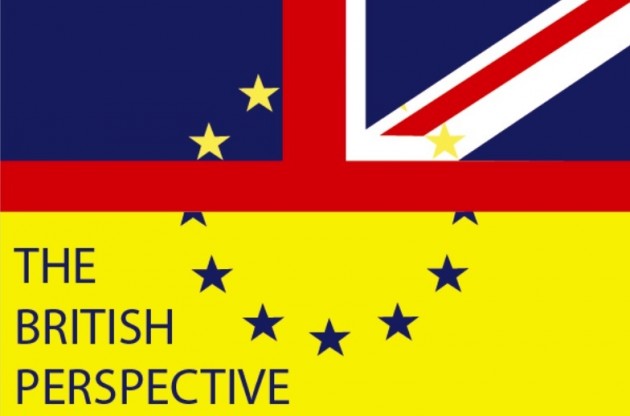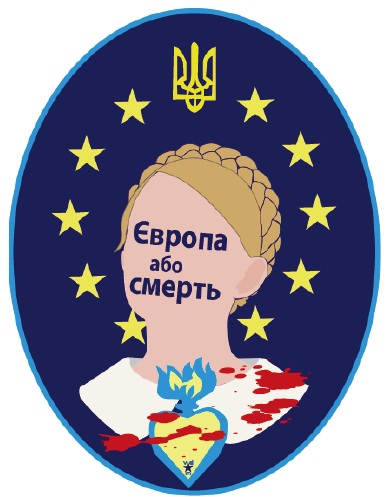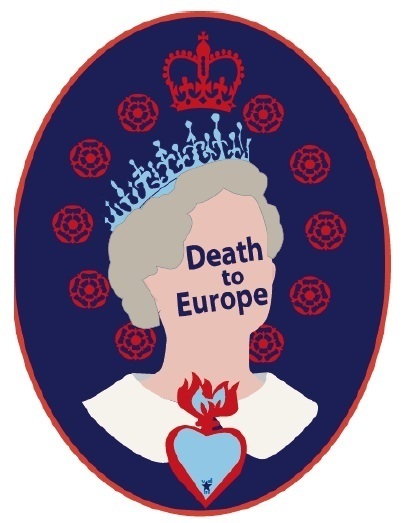Europa o Morte, Morte all’Europa
Le Rivolte Ucraine, il Dibattito sull’Appartenenza Europea e l’Approccio Britannico
Abstract
Le rivolte in Ucraina, le barricate, i disordini per le strade di Kiev e i morti tra i civili e le forze dell’ordine hanno mostrato la volontà di una comunità di lottare per un’opportunità: l’opportunità di aderire all’Unione Europea e cogliere quei benefici che l’euroclub garantisce. “Europa o Morte” è così presto diventato il motto della rivolta ucraina, l’imperativo che ha riacceso il dibattito continentale sull’appartenenza all’Unione che da sempre contrappone europeisti ed euroscettici.
Nel panorama geopolitico che viene così a delinearsi, torna di estrema attualità la prospettiva britannica relativa alla possibilità o meno di lasciare l’Europa. Un quadro internazionale che vede Londra opporre allo spirito europeista di Kiev un secco “Morte all’Europa”.
Lo spirito europeo di Kiev, quanto conviene una UE senza Gran Bretagna, e quanto di contro convenga al Regno Unito stare senza Europa, i temi di fondo del secondo report sulle relazioni internazionali dal punto di vista britannico. Un’analisi multilaterale e completa che si conclude con l’incontro bilaterale di questi giorni tra il Primo Ministro Britannico David Cameron e la Cancelliera Tedesca Angela Merkel, primo segnale tangibile di un passo anglo-tedesco verso un progetto di revisione del Trattato di Lisbona.
***
Europe or Die, Death to Europe
The Ukrainian Riots, the European Union Membership Issue and the British Approach
Matteo Marsini
London, UK
The riots in Ukraine, the barricades, the casualties among both ordinary people and police and the strife on the streets of Kiev showed the will of a community to fight for a chance: the chance to join in the European Union and grab all those benefits that such euroclub allows.
“Europe or Die” soon became the motto of the Ukrainian riots, reopening, not only in Ukraine, the never ending debate on the EU membership between Europeans and Eurosceptics.
In such geopolitical scenario, the British perspective concerning whether or not to leave Europe has become again a living matter, with UK opposing to the Ukrainian motto a skeptical one: “Death to Europe”.
The Movement Euromaidan began to protest in Kiev three months ago. People started to contest former President Viktor Janukovič decision to leave the association agreement with the European Union. Swiftly, in less than two weeks, the peaceful demonstrations turned into hard clashes between protesters and police. Special national security forces charged the crowd and Nezaleznosti Maidan (literally Independence Square) soon became a real battle field. Demonstrators occupied the square and the streets around it, the city of Kiev was split in two parts: the pro-Europeans and those loyal to the President and therefore in favour of Russia, the traditional ally and financier of Janukovič.
The riot, which burst in a national context, suddenly became an international issue when Moscow, on December, 17th 2013, not only announced the grant of a remarkable discount on the gas supplies to Ukraine, but also ensured to President Janukovič a state bond investment of US$ 15 billions. A Kremlin economic move, aimed to keep Kiev on Putin’s side, which worsened the strife on the streets and strengthened the protest.
As a result of the continuous fight between the demonstrators and police, in January 2014 President Janukovič brought the national Parliament to endorse a strict legislative package in order to strongly limit the freedom of expression and the right to demonstrate of all Ukrainians. Due to these repressive laws, riots in Kiev got even more embittered and once the anti-protest act entered into force (January 22nd), President Janukovič ordered the compulsory evacuation of Nezaleznosti Maidan and the dismantling of all the barricades on the streets.
Nonetheless the clash between demonstrators and police went on and the protest spread from Kiev to many other cities of the country with protesters occupying the offices of the public administration. Two dead people shot by police and much more those who got injured in the strifes.
Ukraine was shocked and Kiev disfigured by the fights. That no longer was just a matter of EU membership, rather it turned into a compound issue including inobservance of human rights.
Six days after the enforcement of the public order law, the situation in the Ukrainian capital city was even more dramatic. “Європа або смерть”,“Europe or Die” was not just only a motto, it sadly became reality. The violence which characterised the riots brought President Janukovič to abrogate the anti-protest act and to accept the resignation of the Prime Minister Azarov.
«We are here to support our people who are fighting for freedom, Europe and human rights. We are here to show that in Ukraine innocent people like us, not extremists, are suffering and bleeding. We are here to denounce that as Ukrainians we have no power in our homeland, and that is because Russia is unjustly running our country. We are here to be heard by the EU and the whole world too. We are here to honour those hundred people who were killed since the riot began. We are here because we are left with nothing but an option: Europe or Die!». These were, and still are, the words of disdain coming from the barricades. The words of hope and bravery that have lead the Ukrainian protest for the last three months, keeping echoing even once an agreement between President Janukovič and the opposition was reached at the end of February.
The Ukrainian riots violently reopened the debate on the EU membership between Europeans and Eurosceptics. A traditional quarrel which, under a broader international point of view, opposes the European spirit of Kiev to the British approach.
Since 1972, when Great Britain joined the European Community, the relationship between the British authorities and the European counterparts have always laid on a general sense of diffidence. However, once UK chose to become a Member State of the so called euroclub «it did it…», as asserted by former Prime Minister Margaret Thatcher in 1988, «…not to dream of some cosy isolated existence on the fringes of the European Community». Nonetheless nowadays, increasingly it does. Opinion polls of the last three years show that the majority of British people are in favour of leaving the European Union. No matter whether they might want to walk out of the EU or just believe that UK should distance its policies to the European ones, the British eurosceptic approach seems getting every day closer and closer to the motto “Death to Europe!”.
Such approach brought the Prime Minister David Cameron to declare that «if Europe should carry on with policies which will not meet Great Britain’s interests anymore, there will be no option but to put the European future of the country to a popular referendum which would eventually take place after the next 2015 British round of voting».
Although a referendum on the maintenance or not of the EU membership, as proposed by Mr. Cameron, still represents a likelihood, what instead looks guaranteed is that a British exit would definitely mean a big damage for both UK and Europe.
If Great Britain would leave the EU, in the short term it could take several advantages of the exit, while in the long term there would be more costs than earnings. Leaving the euroclub, as reported in the Economist, will allow Britain to save around £8 billions a year in net budget contributions. Moreover it would free the country of the common agricultural policy and therefore let it sell its food products at cheaper prices. Furthermore it would take UK out of the single market allowing Britain to stop following annoying labour directives. Last but not least it would let the City not to worry so much about financial transaction tax and insidious European finance rules.
On the other hand, in the long term, Great Britain would suffer a lot from a European exit. First of all London would eventually have to renegotiate each single bilateral trade deal and, points out the Economist, it would have to do that from a much weaker position than it enjoyed as a member of the EU. Second, Britain’s economy, leaving the European market, might have to face a fall in its exports to the euroclub due to higher costs, and will have to stop taking advantage of the single market.
So, where is the real advantage of an exit for Britain? Actually, there is no concrete advantage for London but to use the threat of an exit as a bargaining tool in order to achieve limited EU opt-outs and grant UK a European status which would be less EU-member and more EU-partner like Norway or Switzerland are. That is exactly what Mr. Cameron did in the last two years. A political approach aimed to ensure Britain’s interests a certain protection in the European single market.
Such approach lead the British Prime Minister to look for the support of Germany, the pivotal country of the European Union, in order to outline those targeted changes which would eventually be part of a future revision of the Lisbon Treaty. Neither Great Britain, nor Germany want a general treaty revision, rather what Mr. Cameron is trying to do is to identify some favourable changes which would revise the EU rules of the game straight or by an addendum to the treaty.
That was the main topic and aim of the bilateral talks between David Cameron and the German Chancellor Angela Merkel which took place on February, 27th in London. The first step for Britain to win the needed agreement on a treaty revision of all other 27 EU members. The first step of a long and insidious diplomatic negotiation which Mrs. Merkel defined as something «feasible and doable. Nonetheless it is not a piece of cake. It is going to be a lot of work. But we have already worked quite hard on other issues. If one wants Britain to remain in the EU, which is what I want, if one at the same time wants a competitive union that generates growth, one can find common solutions».
We therefore should be ready to offer Britain limited EU opt-outs or let her go. But as David Cameron himself asserted «British people are right to ask themselves concerning the country’s European future as long as they do that very carefully, because the EU exit ticket would be a oneway ticket, no return foreseen».
© RIPRODUZIONE RISERVATA
le illustrazioni sono di M.Marsini ©





















